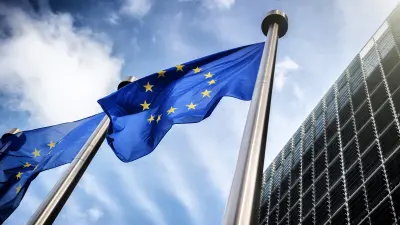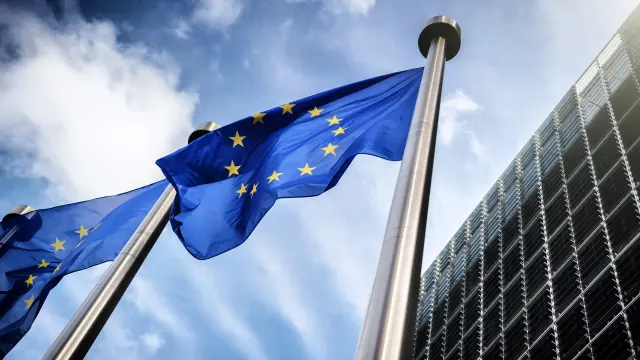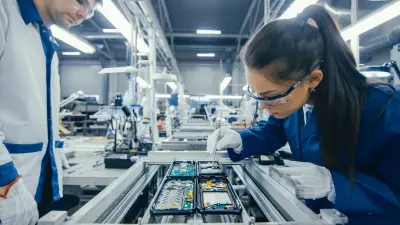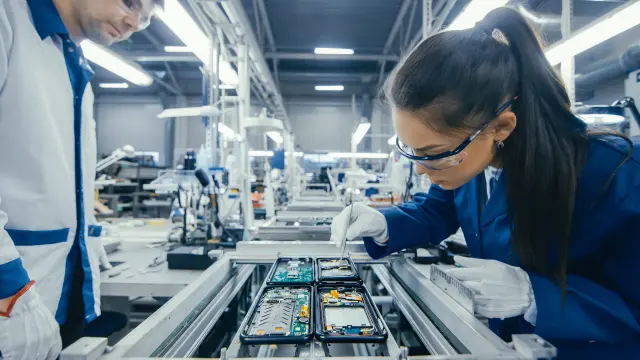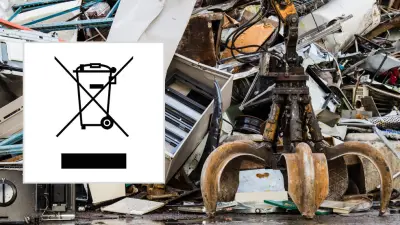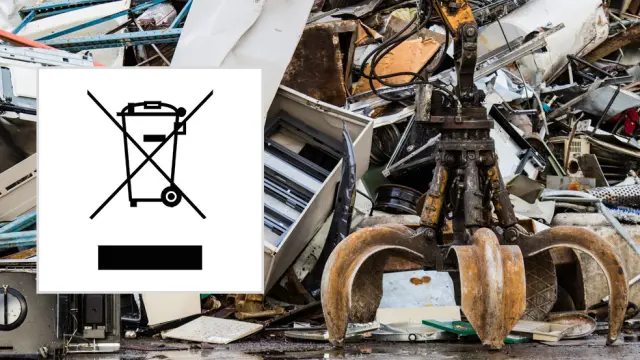Working together for sustainability
We at Bosch Security and Safety Systems strive to make a positive impact – on the users of our building solutions and the world we all live in. In doing so, we start with our own processes and the cooperation with our suppliers and customers – along our entire value chain and in our customers‘ buildings. Together we can conserve valuable resources, increase long-term energy efficiency, reduce carbon footprints and promote the well-being and satisfaction of people. You can call it sustainability. We call it: Building the positive.
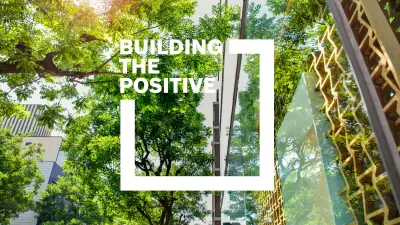

Sustainability and energy efficiency are at the very heart of our business and remain highly significant to our customers
FAQ on sustainability
Defined as a group-wide task within the Bosch Group, sustainability is coordinated by the Sustainability and EHS (Environment, Health, Safety) corporate department. The business sectors pursue the jointly set goals on the basis of systematic sustainability management. The contents, tasks, and related controlling are anchored in the company’s processes. Internal company regulations define the organization and responsibilities for sustainability and EHS in the Bosch Group.
- At Bosch, the highest technical committee for sustainability is the Corporate Sustainability Board (CSB) under the aegis of the chairman of the board of management of Robert Bosch GmbH and the board of management member responsible for sustainability. The Sustainability and EHS corporate department is responsible for the organizational and functional management of the CSB, which convenes twice a year. The committee’s main tasks are to define the sustainability strategy and targets for the Bosch Group, to adopt sustainability activities, to provide transparency and decide in the event of conflicting objectives, to monitor implementation of the sustainability strategy and activities, and to coordinate group-wide position papers on sustainability topics.
- The Sustainability and EHS corporate department is responsible for sustainability management, which mainly entails setting and tracking goals, designing and accompanying programs, preparing concepts for further development, and sustainability reporting. It is accountable for governance in all matters concerning sustainability and EHS and coordinates implementation of regulatory requirements throughout the group.
- The Corporate Communications and Governmental Affairs corporate department is responsible for sustainability communications and interaction with stakeholders around the world.
- The competent officers at corporate headquarters and in the divisions are responsible for implementing the sustainability strategy worldwide and for monitoring the achievement of goals.
Back in 2018, we summarized the focus areas of our sustainability management in a vision that describes six dimensions. Each of these is specified and continually enhanced by reference to two focus activities with clearly defined, medium term targets. Our sustainability activities consider the entire value chain – from materials and goods purchasing or manufacturing operations at Bosch sites to the use phase of products sold and right through to their end of life.
- Climate action: It is our ambition to be a climate action pioneer – advancing the expansion of renewables and striving continuously for energy efficiency.
- Health: We contribute to human health – with innovative products and services, and by ensuring people and the environment are not harmed through their production processes.
- Human rights: We take on responsibility and are sensitive to human rights being respected – along the entire value chain.
- Water: Water is a resource to be used sparingly. Regions in which water is scarce are a special concern.
- Circular economy: We’re reducing our ecological footprint and striving to generate social value. In doing so, we follow the principle of a circular economy.
- Diversity: Diversity, equity, and inclusion are key to our long-term business success. We also contribute to the common good in our communities.
Activities in these six areas also pay into the United Nations Sustainable Development Goals (SDGs) adopted in 2015.
With its more than 400 locations worldwide, the Bosch Group has been carbon neutral overall (scopes 1 & 2) since 2020. To achieve carbon neutrality, we employ four levers: improving energy efficiency, generating our own energy from renewable sources (new clean power), purchasing electricity from renewable sources (green electricity), and – as a last resort – offsetting residual CO₂ emissions with carbon credits.
Scopes 1, 2, and 3 are used according to the Greenhouse Gas Protocol Corporate Accounting and Reporting Standard.
To achieve climate neutrality for scopes 1 and 2, we have defined four levers: increasing energy efficiency, generating energy ourselves from renewable sources (new clean power), purchasing electricity from renewable sources (green electricity), and — as the last resort — using carbon credits to offset remaining CO₂ emissions.
- Energy efficiency: Since 2019 we have been continuously optimizing energy consumptions at our locations. For example in our plant in Homburg
- New clean power: We have been driving renewable in-house energy generation, for example by installing photovoltaic panels on the roof of our manufacturing plant in Ovar, Portugal.
- Green electricity: We prioritize purchasing green electricity, which covered 99% of our group’s global requirements in 2023.
- Carbon offsets: We want to gradually reduce the use of carbon credits to achieve carbon neutrality to no more than 15 percent by 2030 (baseline year 2018). At present, we use carbon credits to offset remaining CO₂ emissions, such as from combustion processes (heating, process heat) and to offset electricity sourced in countries with only limited availability of green electricity. In 2023 we cut the volume of emissions to be offset to some 581,000 metric tons of CO₂. When selecting carbon offset projects, we are guided by internationally recognized and independent certifications, such as the Gold Standard. In the future we want to focus our carbon offset measures even more intensively on nature-based removals. The relevant projects involve sequestering CO₂ in biomass, for example by afforestation.
Scopes 1, 2, and 3 are used in accordance with the Greenhouse Gas Protocol Corporate Accounting and Reporting Standard.
Such emissions, known as scope 3, are generated both upstream by suppliers and in logistics as well as downstream through product use. Our target is to reduce absolute scope 3 emissions by 15%, by 2030 (baseline year: 2018). Bosch Building Technologies contributes to reaching this goal through strategic projects such as reaching CO2 agreements with supplier, choosing raw materials with a low carbon footprint, and applying green design to our product portfolio.
You will find more information in our sustainability report. With this annual factbook, we make our actions transparent — comprehensively and comparably, in accordance with the guidelines of the Global Reporting Initiative.
Any questions about sustainability?

Helena Ferreira
Sustainability Officer Bosch Building Technologies






